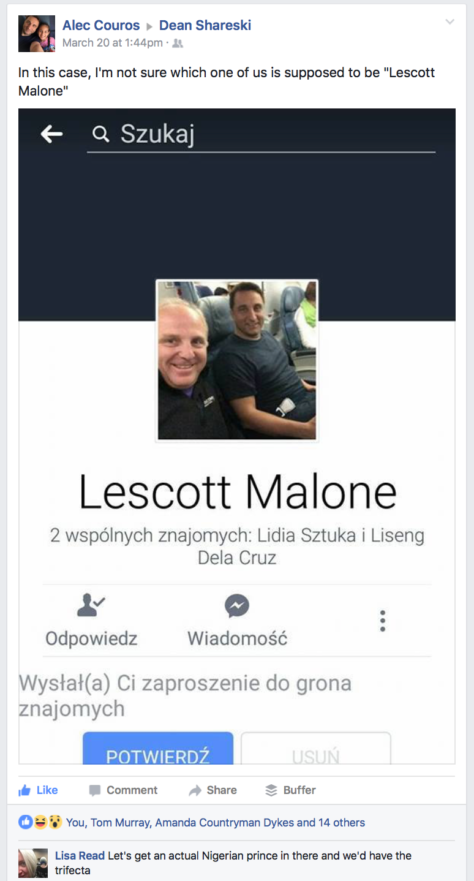I had the wonderful opportunity today to participate in two conference sessions that were led by George Couros. George is a very dynamic speaker with an exciting message and energy that is highly contagious. I had seen his first session before, “The Innovator’s Mindset,” and was very impressed with how polished the presentation has become.
During his second session, “Things Students Should Have Before They Leave High School,” George quickly dug in with one of the participants who questioned why he would suggest that every teen should be participating in social media today. It was if he had planted her in the audience, because her question – the first one asked in the session – led perfectly into what he had planned to discuss. After a series of questions and responses, Ceri Payne joined George onstage, and participated kindly as he proceeded to create a Twitter account for her.
The point of George’s lesson, for Ceri and for the other ~400 educators in attendance, was threefold:
- If you don’t take care of your own online presence, someone else will do it for you.
- Educators today can’t help students to appropriately navigate the online world if they’re unable to navigate it themselves.
- As educators, we need to do a better job of making the positives so loud on social media, that the negatives are almost impossible to hear.
Throughout George’s second presentation, I found myself a bit conflicted with his methods and message. While it’s true that we now live in a world that allows invites and encourages others to curate the online presence of others, there still remain a number of very good reasons why people might want to avoid such exposure.
Take George’s own brother Alec, for example, and our good friend Dean. Pioneers in the field and well-respected ed-tech leaders world-wide, Alec Couros and Dean Shareski have been strong voices for openness and transparency online. Over the course of the last decade+, they’ve openly shared thousands of tweets, blog posts, and photos online with others. As an unfortunate and unintended consequence of this openness, they’ve also become victims of some of the worst catfishing schemes I know. Alec has written extensively about his recurring experiences, as has Dean. Both men, because of the openness they’ve embraced, suffer regularly as scammers use the photos/content they’ve shared to impersonate or otherwise attempt to mislead others.
So, knowing that this has taken place – and knowing that educators need to better understand the terrain – I was conflicted as I watched George post the photo of Ceri online, share it with his 160K followers, and witness the audience squirm through her apparent discomfort with the turn of events. Was it fair of George to share Ceri’s photo like that? Is it fair that she now has no control with what others do with her image and identity? Are we justified in using caution when leading children through the global waters of social networking?
This is the world in which we now live. Regardless of how you may answer any of the above questions, one thing is certain: If you don’t take care of your own online presence, someone else will do it for you.
And sometimes that “someone” may just be the day’s keynote speaker.
